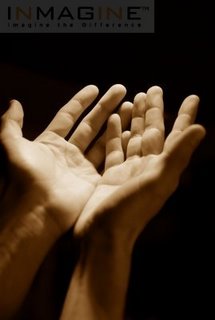
I've been reading a book on the spirituality of the Psalms recently. It's writer, Walter Brueggermann, uses a three-fold classification to speak about the faith of the psalmists which I've found helpful.
First, he claims, there are the many simple psalms of trust. In them the writer/ singer tells of God's safe ordering of the world. In those psalms the world appears a safe place where God is in total control. Such psalms could be said to represent a 'pre-critical' stage of faith where everything is taken on trust, no questions are asked.
But then there are those Psalms which accuse God of being absent or asleep or of not caring. These are a second group: the questioning psalms, 'where are you God?' The writer/singer feels unjustly abandoned. The world is not fair. We might say that such psalms represent a 'critical' stage of faith.
Finally there are those psalms which involved a reconciliation of those two earlier stages. Yes: in the world dreadful things happen, God's power is indeed questionable. But through the storm the psalmist has come to a deeper trust. We could call that a 'post-critical' faith which both contains and surpasses what has gone before.
As I was reading I began to think about my own journey of faith and, indeed, I could see those different stages: naive faith, angry questioning, a deeper acceptance. And it has not happened once but, like a spiral, I go through those processes and (hopefully) find myself ascending in faithfulness.
I found the book's observations helpful. Faith is not static. To have faith means to enter on a journey, not to arrive at a destination. And on that journey both the simple trust and the angry denial have their place...
First, he claims, there are the many simple psalms of trust. In them the writer/ singer tells of God's safe ordering of the world. In those psalms the world appears a safe place where God is in total control. Such psalms could be said to represent a 'pre-critical' stage of faith where everything is taken on trust, no questions are asked.
But then there are those Psalms which accuse God of being absent or asleep or of not caring. These are a second group: the questioning psalms, 'where are you God?' The writer/singer feels unjustly abandoned. The world is not fair. We might say that such psalms represent a 'critical' stage of faith.
Finally there are those psalms which involved a reconciliation of those two earlier stages. Yes: in the world dreadful things happen, God's power is indeed questionable. But through the storm the psalmist has come to a deeper trust. We could call that a 'post-critical' faith which both contains and surpasses what has gone before.
As I was reading I began to think about my own journey of faith and, indeed, I could see those different stages: naive faith, angry questioning, a deeper acceptance. And it has not happened once but, like a spiral, I go through those processes and (hopefully) find myself ascending in faithfulness.
I found the book's observations helpful. Faith is not static. To have faith means to enter on a journey, not to arrive at a destination. And on that journey both the simple trust and the angry denial have their place...
